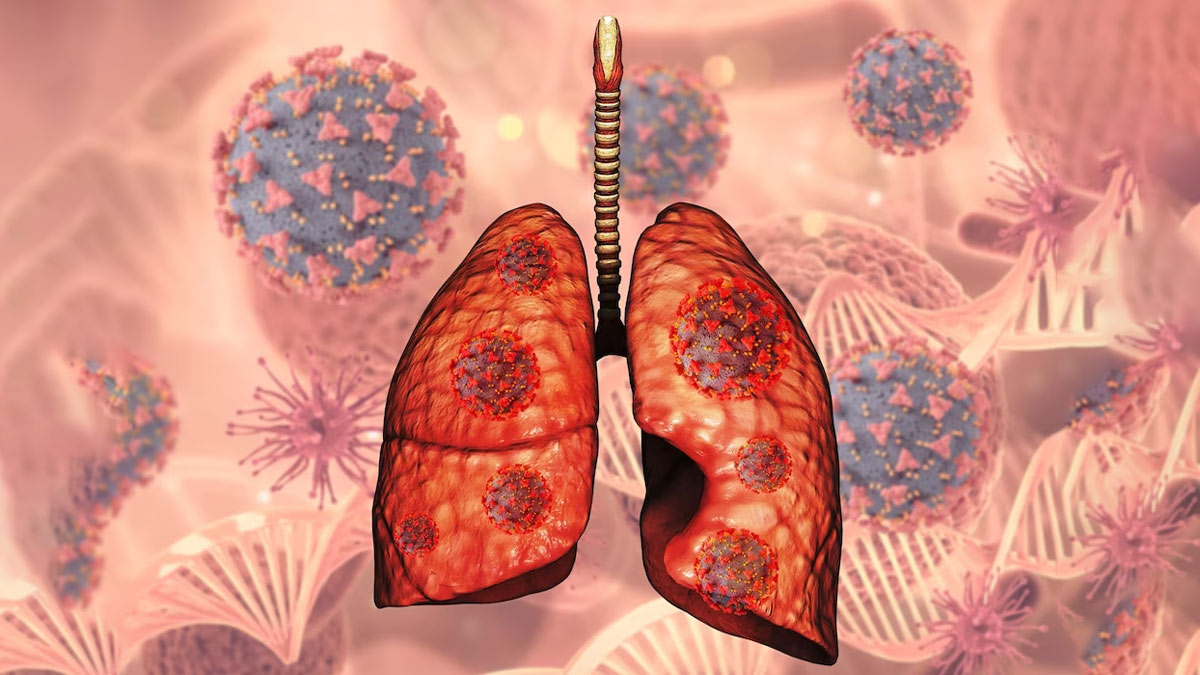November is Lung Cancer Awareness Month, a month that is dedicated to raising awareness and public consciousness around the deadly disease. Lung cancer occurs when cells in the lungs start to grow uncontrollably, leading to a tumour. It is usually categorised into two main types: Small Cell Lung Cancer (SCLC) and Non-Small Cell Lung Cancer (NSCLC). In comparison, SCLC is more aggressive than NSCLC and spreads rapidly, forming flatter and smaller cancer cells.
Smoking is the number-one risk factor for lung cancer. When cigarette smoke, which contains cancer-causing substances, also known as carcinogens, is inhaled by a person, it causes damage to healthy cells that line the lungs, thereby causing lung cancer. However, smoking alone is not responsible for all lung cancer cases. There is a population of lung cancer patients who are non-smokers. Speaking with the OnlyMyHealth team, Dr Arun Pandey, Senior Consultant and Head-Surgical Oncology and Robotic Surgery, Asian Hospital, Faridabad, shed light on the same.
Also Read: What Are The Types of Lung Cancer? Here Are Some Differences and Treatment Options
Smoking Is A Major Contributor Of Lung Cancer

According to the World Health Organization (WHO), lung cancer is the leading cause of death by cancer worldwide. Smoking is the primary cause of lung cancer, accounting for approximately 85% of all cases, the global health body notes.
In India, lung cancer is responsible for 5.9% of all cancers and accounts for 8.1% of all cancer-related deaths, of which nearly 80% are smokers, as per a research article published in the Journal of Thoracic Oncology.
What About People Who Don’t Smoke?
While a majority of lung cancer patients are smokers, 10-20% of people who developed lung cancer have never smoked, according to the National Cancer Institute (NCI).
A study published in the Missouri Medicine-The Journal of the Missouri State Medical Association, 15–20% of men and over 50% of women with lung cancer are non-smokers. So if not smoking, what are the contributing factors?
Dr Pandey said, “Other than smoking cigarettes, pipes, or cigars, lung cancer can also be caused by exposure to secondhand smoke, radon, air pollution, a family history of lung cancer, and asbestos.”
According to the US Centers for Disease Control and Prevention (CDC), people who do not smoke but are exposed to secondhand smoke are at a 20-30% increased risk of developing lung cancer. In the US, it is said to cause more than 7,300 lung cancer deaths each year.

Other than secondhand smoke and environmental factors, persistent exposure to cooking emissions from wood burning or frying has been linked to an increase in lung cancer among nonsmokers in developing nations, said Dr Pandey, adding, “Animal dung/faeces can be dried and burned as fuel, increasing the risk of cancer and reactive airway disease if inhaled.”
Moreover, underlying lung disease is also an important risk factor for the development of lung cancer in non-smokers. The doctor said, “Lung disease can be caused by a variety of reasons, including pre-existing disease or chemotherapy and radiation. The amount of this risk is unknown because the bulk of lung illness is caused by smoking.”
Also Read: Lung Cancer: 7 Signs You Need To Know
Lung cancer can also be hereditary in people who do not smoke and develop the disease. According to a 2017 study published in the Oncology Letters, approximately 8% of lung cancers are inherited or occur as a result of a genetic predisposition.
"If cancer runs in your family, talk to your doctor about the necessary preventive measures you can take to lower your risk. People who have never smoked may have a DNA mutation, such as one in the epidermal growth factor receptor (EGFR) gene or other genes that predispose them to lung cancer,” advised Dr Pandey.

How To Reduce The Risk Of Lung Cancer
Prevention typically involves quitting smoking, avoiding secondhand smoke, air pollution, and exposure to workplace carcinogens such as chemicals and asbestos.
In addition, getting regular lung cancer screening can help detect the disease in its early stages, facilitating effective treatment and a better patient outcome.